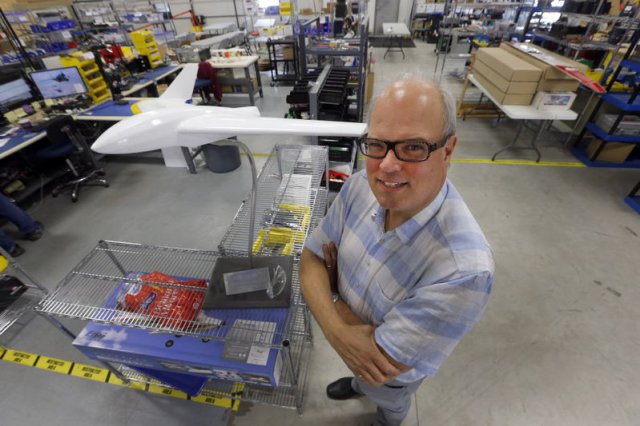Stony Mountain company, MicroPilot, is celebrated its 20th anniversary last weekend and Howard Loewen hopes someday — maybe within the next five years — his company might become an overnight success. MicroPilot makes autopilot technology — autonomous flight operating systems — for unmanned aerial vehicles.
There is growing public awareness about potential non-military uses of drones. When online retailer Amazon said it was testing unmanned drones for delivering goods to customers last year that awareness spiked.
What is less well-known is the commercial operation of such devices is extremely restricted throughout the world.
Currently, Transport Canada issues special permits on a case-by-case basis for commercial UAV operators after a rigorous application process.
Interest in and demand for these permits have skyrocketed in the last few years.
Andrea Moritz, a spokeswoman for Transport Canada, said the agency issued 155 special flight-operation certificates in 2011, more than twice that amount in 2012, and 945 in 2013.
Growing demand means there’s a four- to six-month wait for permits.
In the U.S., there is even less access to such permits for non-government operators.
Loewen and others believe the tight regulatory environment will be loosened before long.
“I think it will be within one to five years. So, any minute now,” Loewen said. “And I think what will happen for us is that all of a sudden we will be success story 22 years — or however long — in the making.”
Accuas Services Inc., based in Salmon Arm, B.C., operates more than 10 UAVs doing various kinds of survey work for mining, oil and gas and other resource companies. In 2007, it became the first commercial UAV operator in Canada and since then has been able to secure annual regional operating permits from Transport Canada.
Scott McTavish, the president and founder of Accuas, said his firm uses MicroPilot technology exclusively.
“What is going on in the industry lately is that there are lots of autopilots that have come out that are less expensive but they are not reliable, they’re unproven and they lack support,” McTavish said.
“MicroPilot’s sole focus is on the autopilot, which is the most critical part of UAV.”
Loewen and his team of about 25 employees, which has grown gradually, are making the type of systems favoured by high-end UAV makers such as the Belgian company Gatewing, which was acquired two years ago by Trimble, a California company.
MicroPilot’s other competitors have recently been acquired by international aerospace giants such as Lockheed Martin and United Technologies.
Those moves are likely in expectation of changes to the permitting rule, especially in the U.S. where regulators are creating laws for the commercial use of drones.
Just this week, another California company — Unmanned Innovation Inc., which does business as Airware — raised $25 million in addition to $15 million it previously raised to get its first drone product to market later this year.
Loewen said he has no interest in selling his firm, but he’s getting ready for when the market opens up.
“It is a lot of work supporting a company through the development process,” he said. “But once they’re in production, it’s much less work. Our whole production system is set up so that if we had to produce 10 times as many autopilots, we would be able to do that without any problem.”
Loewen is nothing if not patient.
The company does not disclose financial results. Loewen would only say MicroPilot is growing and it reinvests its earnings in research and development.
Photo : Howard Loewen, MicroPilot
Source: Winnipeg Free Press

